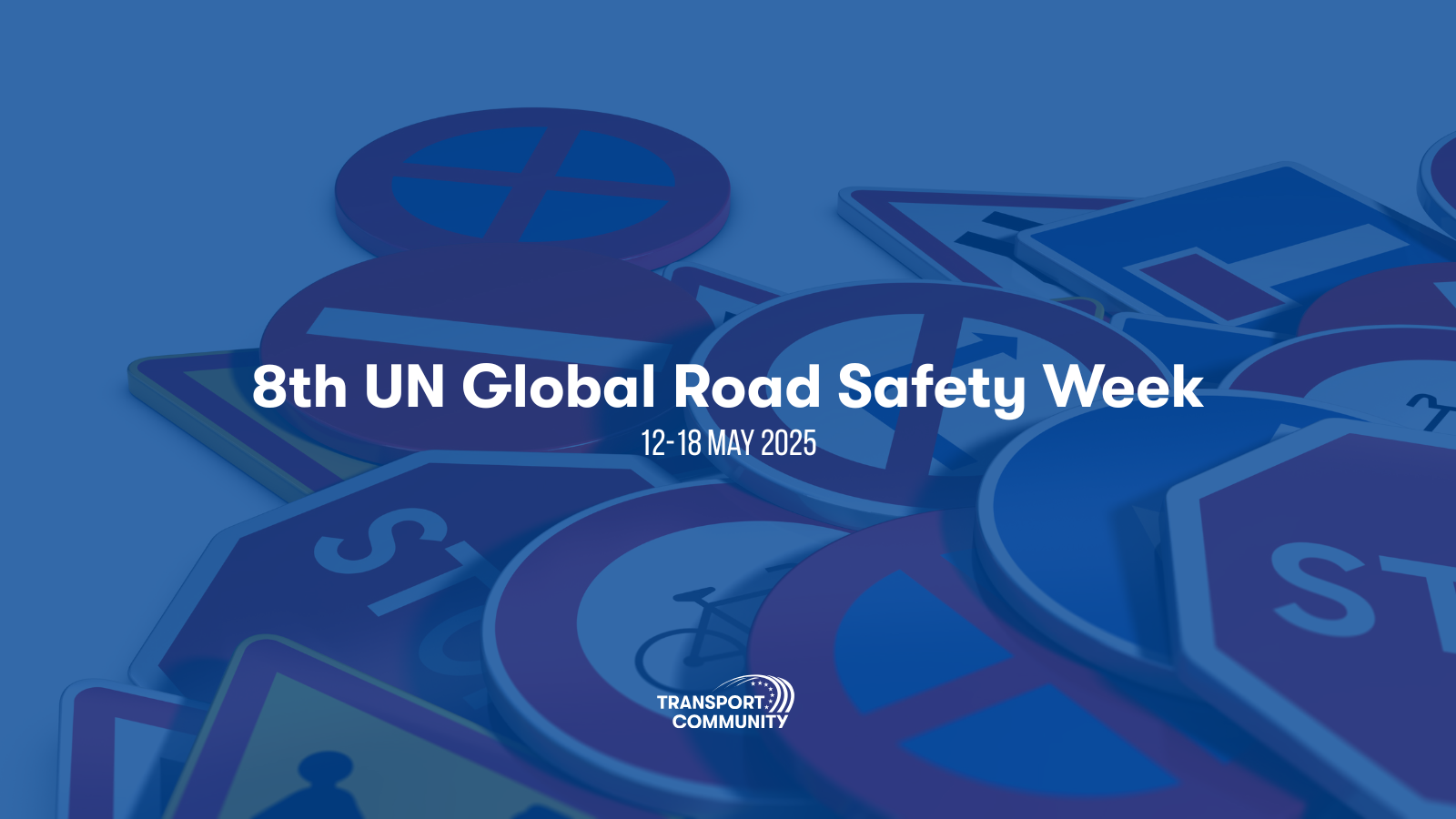WESTERN BALKANS – As stated by the World Health Organisation, road traffic injuries are a leading cause of death and disability worldwide, with nearly 1.2 million people killed and as many as 50 million people injured each year. They are the leading killer of young people aged 5-29 years, as well as of vulnerable road users – particularly pedestrians and cyclists.
In 2024, the Western Balkans recorded a total of 1,225 road fatalities. This marks a 2.9% decrease in road deaths from 2023, indicating a small positive trend toward improved road safety in the region. However, the trend shows that we are far from reaching the goal, Vision 0 by 2050.
The 8th UN Global Road Safety Week, marked between 12 and 18 May 2025, comes with the topic of “Making walking and cycling safe” highlighting the concrete interventions that can be taken by different stakeholders.
The Permanent Secretariat of the Transport Community prioritises road safety and is implementing a comprehensive Safe System approach through its Road Safety Action Plan and the Western Balkans Road Safety Observatory. This strategy aims to enhance road safety across the region by integrating data-driven policies, infrastructure improvements, and institutional collaboration.
Among other priorities, the Road Safety Action Plan puts a particular attention on the protection of vulnerable road users – including pedestrians, cyclists, motorcyclists, children, the elderly, and individuals with disabilities.
The Transport Community has actively supported and promoted making walking and cycling safe throughout its activities, among which was translation and promotion of the “Safer to School” guidelines. The Safer to School guidelines provide practical measures designed to make school zones safer for children. Developed by the Slovenian Infrastructure Agency and already successfully implemented in Slovenia, these guidelines offer a model for improving road safety across the Western Balkans. They have been promoted in several Western Balkan regional partners, including Albania, Bosnia and Herzegovina, Kosovo*, and Montenegro, aiming to create safer school zones through infrastructure adjustments, speed limit enforcement, and improved roads’ signage.
Furthermore, the Green Mobility Summit, held on 6-7 June 2024 in Sarajevo, Bosnia and Herzegovina, brought together Ministers of Transport and local authorities to discuss and promote innovative sustainable transport solutions. The summit endorsed the Declaration for Green Mobility of South East European Parties and Observing Participants. By endorsing the Declaration, the authorities committed to integrating their transport markets into the EU’s, focusing on zero-emission mobility, transport digitalisation, and the TEN-T Network extension. The declaration also promotes cycling as a sustainable transport mode, with commitments to develop national policies, improve safety, integrate cycling into urban planning, and enhance international cooperation.
These actions will help promote and facilitate a shift to walking and cycling, which are more healthy, green, sustainable and economically advantageous modes of transport.
The Cycling Declaration has the objective of promoting cycling for a healthier, more equitable, and environmentally friendly society, with key initiatives such as development and implementation of supportive policies, investing in cycling infrastructure, improving safety for cyclists, reducing emissions through increased cycling, and prioritising inclusivity to ensure cycling is accessible to all.
_____________
* This designation is without prejudice to positions on status, and is in line with UNSCR 1244/1999 and the ICJ Opinion on the Kosovo declaration of independence










